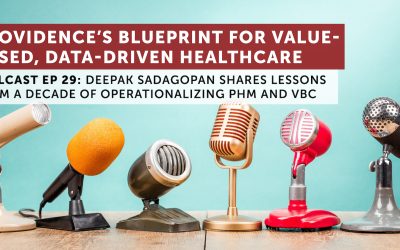As most of our readers are likely aware, the FDA this week issued a scathing letter effectively prohibiting the 5 year-old, 23andMe personal genomics testing company from doing business. Quite frankly, this is all pretty unnecessary, and reflects poor policy on the parts of both institutions. Furthermore, this ruling may have longer-term implications that will cripple the process of democratizing genetic testing and research.
23andMe: Naiveté or Arrogance
First and foremost, 23andMe has been selling their personalized genetic testing kits for the last few years despite notice that they needed FDA clearance and have not yet received it. According to the FDA, there have been many interactions with the company to work together to make this test safe and reliable for consumers. In their scathing letter, they lay this out very specifically:
“As part of our interactions with you, including more than 14 face-to-face and teleconference meetings, hundreds of email exchanges, and dozens of written communications, we provided you with specific feedback on study protocols and clinical and analytical validation requirements, discussed potential classifications and regulatory pathways (including reasonable submission timelines), provided statistical advice, and discussed potential risk mitigation strategies. As discussed above, FDA is concerned about the public health consequences of inaccurate results from the PGS device; the main purpose of compliance with FDA’s regulatory requirements is to ensure that the tests work.”
Anne Wojciki, the CEO, yesterday posted their response to the FDA’s letter on the 23andMe blog. In it, she admits that they have not been on top of the filing process:
“In July 2012 23andMe submitted its first application for FDA clearance and followed on with another submission at the end of August. We received feedback on those submissions and acknowledge that we are behind schedule with our responses.”
The FDA is a regulatory body and therefore should never be taken lightly or overlooked. Put simply, they have the power to cripple your business. This leads one to wonder why 23andMe seems to have taken such a lackadaisical attitude towards the FDA and taking so long to follow through with a renewed application that took the FDA’s concerns into account. Did 23andMe really think there would be no repercussions to their inaction? Were they truly that naïve or worse, arrogant?
The FDA: Do they really have the authority to do this?
Legally, yes. The ‘Legal Argument’ website Mootus has taken this issue to the masses, asking for contributions to answer the question of the legality of the FDA’s actions. The clearest predicate case is to Chevron U.S.A., Inc. v. Natural Resources Defense Council, Inc. (Supreme Court 1984):
Courts must give deference to an agency’s reasonable interpretation of an ambiguous provision within the agency’s own organic statute.
If this sounds a little self-serving for the government, that’s because it is. In fairness though, it makes sense as no government agency can foresee every possible permutation of how it’s regulations will be interpreted. Hence the many loopholes federal agencies are always trying to stay on top of.
Before I became interested in healthcare IT, my first jobs out of undergrad were conducting genetics research. I worked in labs at Massachusetts General Hospital and Novartis Institutes for Biomedical Research looking for novel ways to genetically characterize disease for both treatment and risk. Our understanding of ‘genetic risk’ for disease is still very much in its infancy. Like almost all of healthcare, genetic testing is not something that a medical practice will just do for you – there needs to be a legitimate medical need.
Because of my background, the rise of consumer companies selling genetic test kits has always been of interest. My first boss, Rudolph Tanzi, one of the world’s experts on genetics (specifically related to Alzheimer’s disease), was of the opinion that there has not been enough research published to truly inform patients of their risk for different illnesses. For strict medical purposes, this is a prudent position. If you are going to tell someone they have a specific illness based on genetics, then the science better be conclusive.
This is where things with 23andMe become murky. 23and Me has never stated that they are providing medical advice, which very much would make them a medical diagnostic under FDA regulation. To the contrary, they and other consumer genetic testing companies clearly state that they provide information. In the case of 23andMe, they first got their start promoting their ability to do genetic matching to determine an individual’s ancestry. Today, 23and Me promotes that they are disseminating medical information that is already in the public domain, and making it accessible to a layperson for very low cost. Therefore, if one looks to recent FDA mHealth guidelines (PDF) as providing some indication on how the FDA may rule on consumer genetic testing, one could easily assume that 23andMe is “safe” from FDA regulatory burden.
23andMe uses CLIA-certified labs to conduct testing. They cite all of their reference articles for how they determine risk (see asthma example here). They very clearly state in their Terms of Service (TOS) that they are not a medical service, and do not provide diagnostic services. Listed below are the main subheadings from Section 5 of their TOS, “Risks and Considerations Regarding 23andMe Services”:
- Once you obtain your Genetic Information, the knowledge is irrevocable.
- You may learn information about yourself that you do not anticipate.
- The laboratory may not be able to process your sample, and the laboratory process may result in errors.
- You should not change your health behaviors solely on the basis of information from 23andMe.
- Genetic research is not comprehensive.
- 23andMe Services are for research, informational, and educational use only. We do not provide medical advice.
The 23andMe service is meant to be an interesting glimpse into your own history, and potential future. It can also be a powerful information tool to identify what you can do to live a healthier life, much in the way of the Quantified Self movement.
What this means for consumers
As with all of medical care, allowing patients to have access to their own information seems to be against the interests of some very powerful entities. Only in recent years have patients been given access to their own health information, although it can still be a struggle to obtain that information.
Part of what plagues this industry is the continued belief by many healthcare professionals that consumers cannot be trusted – that they can only navigate their health with the assistance of a physician and can’t be relied upon to do their own research. And while this is changing, it is happening ever so slowly. This patronizing paternalism on the part of the healthcare establishment is outdated and needs to change. A new world order is coming to the healthcare sector much like it has come to many others. One where the consumer requests a more dynamic role and the provider becomes more of a coach to help guide the consumer, not dictate what the consumer can and cannot do with information about themselves.
For now, it looks as though access to your own genetic information will continue to be overseen by the FDA, but hopefully in the future such regulating bodies will see the benefit of opening up the floodgates. By allowing curious individuals to assess their genetic information, and then share that at their own discretion, companies like 23andMe are creating a vast new data pool for genetic research. By updating profiles with relevant health developments, this information can be mined to find new correlations that were previously unidentified by the current methods of conducting genetic research after knowing that someone has an illness. Predictive models only get better the more they learn, and more users in this case is more education for the entire genetics community. Similar to what PatientsLikeMe has famously done with testing drug efficacy, 23andMe can theoretically do for genetics. 23andMe may be forced to halt testing for medical issues until this dispute is resolved, but they can still provide ancestry information, and will always have your sample on file if and when they get the clearance to start marketing for medical purposes again.
What does this mean for industry?
Clearly, the FDA is a fickle master, and there are still a lot of gray areas around what they expect to regulate. With the pace of technology advancements continuously accelerating, any regulatory body would be hard-pressed to keep up. The recent publication of their mHealth Guidance provided tremendously valuable clarity to that new industry. However, it also shows that not all products in the healthcare space are expected to adhere to the same set of rules and corporations from any sub-industry should be aware of the specific constraints relevant to them.
Our recommendation is that you always enter the space with open eyes, and regularly interface with the FDA to ensure you are working in concert. Regulations will always be in flux, and showing a willingness to cooperate early will only go in your favor. Eventually, the FDA may realize that the service 23andMe provides is not actually a medical service – although it does touch medicine. This goes for any new medical innovation that is not clearly defined in the FDA charter. In the meantime, at least attempt cooperation and show the organization the respect it merits so it won’t shut you down.





Amen. Great write up on the issue.